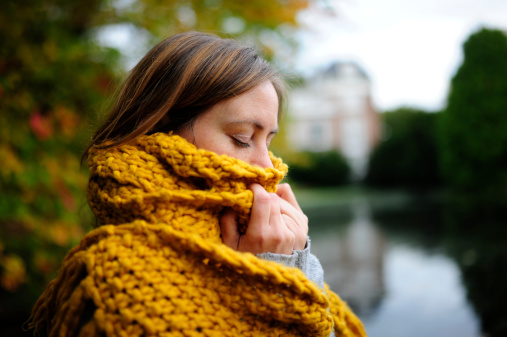 Recently, my son told me of a situation he had decided to avoid. To sum it up, he said, “I’d rather protect than subject.” I thought this encompassed many lessons in a concise way.
Recently, my son told me of a situation he had decided to avoid. To sum it up, he said, “I’d rather protect than subject.” I thought this encompassed many lessons in a concise way.
How often do we subject ourselves to situations we know will be unpleasant? How often do we choose to see people we know will deplete us, go to an event we would really rather skip, or say yes when every cell is screaming no?
Healthy self-care depends on our ability to set boundaries. Assertively creating the life you want includes saying no—and sticking to it, as opposed to saying no and letting people cajole you into saying yes. By staying true to your goal of treating yourself well, you can push out of the comfort zone of not disappointing anyone and actually say no as many times as is necessary for someone to hear you. Typically, this takes a few repetitions. The good news is you just have to repeat yourself. There’s no need to say it in a different way. The easiest response is often, “I am sorry I won’t be able to do that; I have other plans.” No one needs to know what your plans are. You may want to spend the afternoon staring into space, writing a dissertation, or taking a nap. It doesn’t matter. Just saying the same sentence again and again in a kind, patient, gentle way will do the trick.
Good self-care also requires a willingness to look at one’s life and see where it could be more balanced. Are you spending an inordinate amount of time at work? Are you experiencing compassion fatigue from caring for a relative? Does your life feel swamped with errands and chores? Are you studying into the wee hours? Exercising to a state of exhaustion? By taking a look at the major areas of your life, you can quickly see if you are giving short shrift to rest, relaxation, social time, solitude, quiet, dancing, nature, journaling, music, or anything else that rejuvenates your body, mind, and spirit. Start by carving out even five minutes to sit quietly, have a cup of tea, or close your eyes. Making the conscious decision to take time to be still can be far more challenging than staying on the activity treadmill. Once you give yourself the gift of stopping and simply being, the rewards will keep you coming back.
Protecting yourself from your own internal litany of self-criticism is also important. How do you talk to yourself? Are you quick to put yourself down? Sometimes, protecting yourself means learning to be more tender with your own feelings, including your emotional responses to life’s slings and arrows. Creating an inner dialogue of supportive, positive, loving messages will have a profound effect on your relationship with yourself. A good way to start is to read a list of affirmations and write down a few that really resonate with you. I am especially fond of Louise Hay’s approach: Look in the mirror every day and say, “I love you. I really, really love you.” As supremely simple as this sounds, it is amazingly powerful.
On a more mundane level, self-protection entails daily rituals of eating, sleeping, and getting some fresh air. How conscientious are you with these basic life tasks? Most Americans get far too little sleep, which sets the stage for disease, crankiness, and deep fatigue. How is your diet? Are you eating five to nine servings of fruits and vegetables a day? It is not that hard to do. Try a handful of baby carrots, a bowl of bean soup, some fruit and cereal, a stir-fry or salad. Each of these foods will improve your mood, bolster your immune system, and provide you with the energy you need to better navigate your day. Make eating well a priority and watch your sense of well-being improve. While you are at it, make sure you eat frequently enough. Eating infrequently is another emotional saboteur, as low blood-sugar levels wreak havoc on your ability to feel stable, patient, and resilient. So, don’t let more than four hours pass without a snack or meal—and please eat breakfast.
On the topic of food, there is an ever-increasing amount of research being done on the beneficial effects of probiotics on all aspects of health—especially immunity and mood. Whether you eat sauerkraut, tempeh, yogurt, kefir, cheese, or dark chocolate (yes, chocolate is a fermented food), having some of these every day ensures a healthy gut.
Last, but not least, being aware of how things affect you is crucial to doing everything I’ve mentioned. Whether it is awareness of how you respond to someone’s tone of voice and asking them to speak to you differently, paying attention to feeling tired and actually going to sleep, or eating before you are starving, the greater your awareness, the greater the chances you will take better care of yourself. If you find yourself rushing through your day, try to carve out some solitude for yourself. By sitting with your breath and watching the parade of thoughts as they pass across your mind, you soothe your nervous system and begin to understand the transitory nature of everything.
Remember, you are a work in progress. The next time you think you have subjected yourself to someone or something that was disturbing, unhealthy, or even toxic, use it as an opportunity to be more aware in the future. Growth and change happen incrementally. Be thankful you could be aware of the situation’s effect on you, and resolve to head it off at the pass the next time.

The preceding article was solely written by the author named above. Any views and opinions expressed are not necessarily shared by GoodTherapy.org. Questions or concerns about the preceding article can be directed to the author or posted as a comment below.

 Want to Soar? Let Go of Outcome, Failure, and Imperfection
Want to Soar? Let Go of Outcome, Failure, and Imperfection In Praise of Hedonia
In Praise of Hedonia Topic Expert Roundup: How Do Diet and Nutrition Affect Mental Health?
Topic Expert Roundup: How Do Diet and Nutrition Affect Mental Health?

